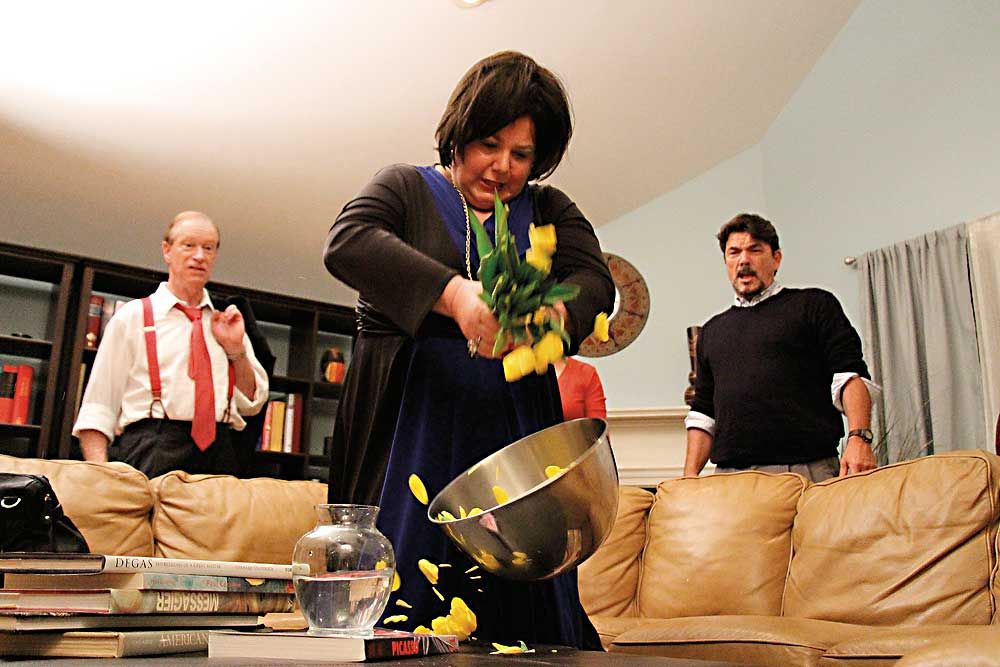ORLEANS, MASS.: You’ve heard of Murder in the Cathedral. How about Carnage in the monastery? That’s more or less what will transpire when Elements Theatre Company—the resident stage company at the Community of Jesus, an ecumenical monastic outpost on Cape Cod—presents French playwright Yasmina Reza’s Tony-winning play God of Carnage, a coruscating comedy of bad manners featuring projectile vomiting, profanity and wanton cellphone destruction. The production, helmed by artistic director Danielle Dwyer, will first be mounted off-site, in the non-ecclesial setting of the Art House in nearby Provincetown, Nov. 7–9.
But then it comes home to the Paraclete House, on the sprawling grounds of the Community of Jesus, Nov. 14–23—directly across from the stunning Church of the Transfiguration, and among the friary, convent and single-family homes in which adherents from a variety of Christian denominations live in accordance with Benedictine principles while pursuing a variety of creative endeavors, from jam-making to farming to music. The theatre company, founded in 1992, is comprised of celibate brothers and sisters—Dwyer is among these ranks—as well as community members who may be married or single and who live offsite, but are more invested in the community’s activities than your average weekly church congregant. Chris Kanaga, who plays Michael, is a lawyer by day; and Brad Lussier, who plays Alan, is the company dramaturg.
So how will Reza’s biting play go over with the Elements audience? Well, for a clue, the last Elements production was a robust, bloody rendition of Julius Caesar, staged in the stately courtyard of the church itself—which should indicate that neither the church community nor the audience is full of shrinking violets.
“The violence and the disrespect and the emotions of this play are not that different from Julius Caesar,” reasons Dwyer, who also plays the role of Annette. “Dealing with our human condition and how we act toward each other—that fits our theatre’s mission, and that’s what we’re dedicated to exploring.” Dwyer says that when they do a modern piece, they look for “something that has classical roots to it, that will allow for a journey for the audience and the actor.” She cites one of the lesser-known Benedictine vows, which even oblates take.
“The vow of conversion is another doorway to see another part of yourself,” Dwyer explains. “So a character will leave us with something of themselves that will change us. That’s an important part of why we do what we do.”
While Dwyer can’t say whether Elements’s relatively edgy programming is unique among Benedictine communities, Kanaga notes that most religious communities he knows of who do theatre “commit themselves to sacred theatre or mystery plays.” But Dwyer is quick to point out what theatre and religion have in common: “Being authentic and truthful, and willing to serve and make sacrifices for a larger goal—that’s in all theatre.”


